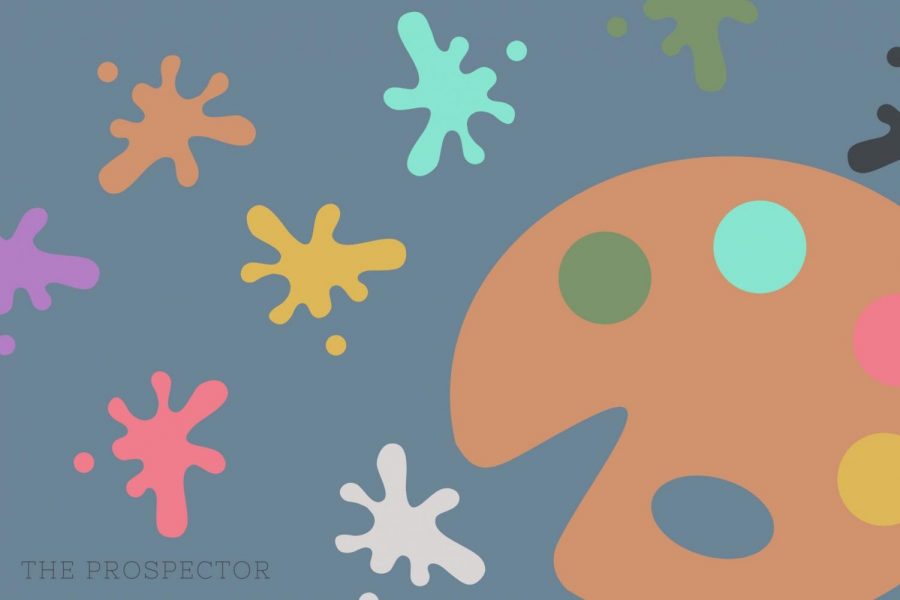In response to the city’s ordinance, the University of Texas at El Paso announced it would be transitioning to online classes for the remainder of the semester to prevent the spread of COVID-19, leaving professors and students from UTEP’s Department of Art (DoART) questioning how they would continue their curriculum without having any access to the art studios.
With the rapid rise of coronavirus cases in the U.S., schools were forced to close their doors for the remainder of the semester and transition classes online. According to National Center for Education Statistics, at least 55.1 million students were affected by school closures in 19 states and three U.S. territories.
On March 24, DoART announced on Facebook that it would be closing its doors after the city of El Paso released a stay at home order. Students were told to pick up the remainder of their materials and supplies, and to clean out their lockers while following social distancing protocols.
Without studio access, ceramics students wondered how they were to continue their work without having access to the kilns. Students in the metals program are unable to access proper machinery, gas lines, torches and soldering stations. Sculpture students can no longer use the welding station, woodshop and the studio space. Having classes that are literally hands-on, the DoART’s students and faculty were suddenly cut off from their facilities and limited by the pandemic.
“I had a wise mentor who once told me that sometimes in life you just have to take the deck of cards and throw them up in the air, reshuffle them to the extreme. The deck of cards, in this case, is our class. Nature just threw the deck up into the stratosphere and cards are flying all over the place,” said Ceramics Professor Vincent Burke to his students as he saw this as an opportunity to approach education from a different angle. “We’re going to remain positive, help each other however we can and continue to grow and create art even if it is not at the UTEP studios.”
After an extended spring break, students continued their studies on March 30 through virtual lectures and online work. For them, this has been a challenge, but studio professors have taken this as an opportunity to try new things and open new horizons for their students.
Burke took advantage of the crisis by enrolling his students in an online glaze course. The ceramics professor is also encouraging students to practice hand building techniques and is allowing them to fire their work once everyone is allowed back on campus. Burke has kept his students busy with a traditional approach to their education and continues to show techniques that can be used at home.
“Having the setting change so quickly in the span of two weeks was hectic,” said Roxana Rodriguez, a UTEP student minoring in metals. “With the shutdown, we have resorted to using alternative materials such as plastic, bags, cloth, bottles, needles, anything that we can manipulate without relying on the studio. It’s rather hard considering we have to stray away soldering, which is a huge aspect of metals.”
Angel Cabrales, a sculpture professor, has also given his students the opportunity to work from home by having them explore materials around them to create “earth works” with non-traditional materials that can be found in nature, as seen by artist Andy Goldsworthy’s work. The project has been assigned by Cabrales in the past in his sculpture I class, where students have created these “earth works” in the mountains surrounding the UTEP Sun Bowl.
“I consider myself really lucky since I have a studio at home where I have plenty of space to work, but not many students do,” said Eber Sanchez, a painting major student. “The struggles that I am having is the discipline of working at home. Also, painting requires a lot of chemical use, such as mineral spirits, and I don’t have the means to dispose of them, I have to keep them in jars.”
While some students have space at home, others have been forced to get creative.
“Since the closure of campus, the impact can really be felt. As a student, we get used to having all the studio space and equipment or tools. We each adapt accordingly in our own way and create a system we get accustomed to, especially as artists, being that a huge part of our art is process driven,” said John David Ibarra, a printmaking major student who has had to learn how to hand–print relief prints, reminiscent of 18th century Asian practices. “It feels like a drastic change without necessary equipment, like etching and lithography presses, exposure units, acid bathes, spray booths and proper ventilation.”
Ibarra had to set up a studio in his home garage using a worktable and opens the garage door for ventilation when working with solvents.
The student also mentioned that printmaking professor Kim Bauer supplied his students with safe inks that can be used at home and provided them with essential materials.
“A lot of the creativeness comes out of the way we innovate with what we have available to us,” Ibarra said. “And also, the process we use to arrive at set results.”
Jaqueline Martinez may be reached at prospector@utep,edu









